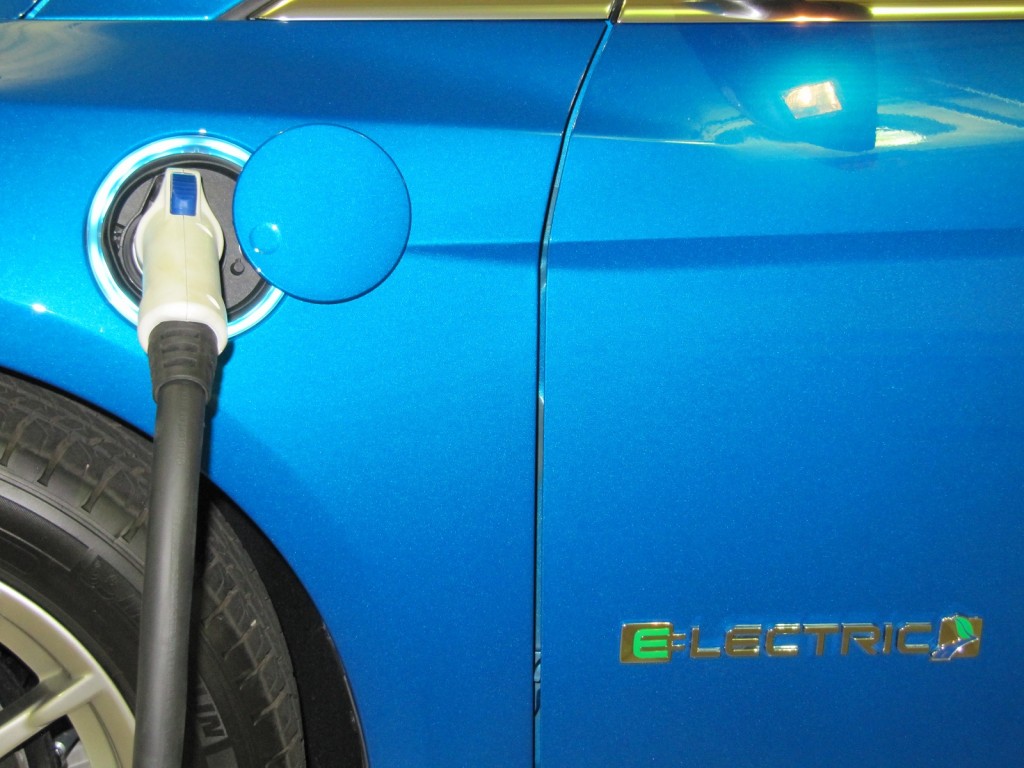Some makers are investing in battery electric cars and doing their darnedest to make them market successes--think Nissan or Tesla, for example.
Ford does not appear to be one of those companies.
Since the second month that its plug-in hybrid C-Max Energi went on the market, its monthly sales have exceeded the total sales of the Ford Focus Electric for all of 2012.
Now, Ford has said that despite adding an additional 700 dealers certified to sell its range of plug-in vehicles, it expects Focus Electric sales to grow only slowly.
The company has long said it expects battery-electric vehicles will make up only 5 percent of its electrified-vehicle sales, including hybrids, plug-in hybrids, and battery electric vehicles.
Ford says it can build up to 100,000 such vehicles, depending on market demand.
That would mean it expects to sell no more than 5,000 Focus Electrics--and, indeed, it sold just 685 during all of 2012.
C.J. O'Donnell, the company's group marketing manager for electrification, told The Detroit News that those sales were "meeting our expectations in the marketplace."
And, he said, as more dealers are certified to sell the car, sales should rise accordingly.
Ford has often countered claims that its Focus Electric is no more than a compliance car put on sale solely to meet California's zero-emission vehicle requirements.
O'Donnell told the Detroit News that he encounters that idea a lot, "and I don't want to say I take offense to it, because that's kind of strong."
Instead, he says, Ford views its Focus Electric strategy as offering "choice" to its customers.
It offers the electric Focus in several regions outside those where ZEV sales count toward the mandate, but its sales resemble compliance-car volumes more than those of the Nissan Leaf or even the Tesla Model S.
And Ford's pessimistic view of the opportunities for battery-electric vehicles were underscored today by Mike Tamor, the company's executive technical leader for hybrid, electric, and fuel-cell vehicles.
In a presentation at the SAE Hybrid & Electric Vehicle Technologies Symposium held this morning in Anaheim, California, Tamor spent his first 10 minutes highlighting the many reasons Ford does not believe that battery-electric vehicles will be affordable or appeal to car buyers for quite some time.
An early slide in his presentation described the situation in the early 1900s, when electric cars were limited in range, speed, and recharge time, and asked, "Why should it be any different this time?"

2012 Ford Focus Electric, New York City, April 2012
In a presentation of vehicle usage and customer desires, Ford said the market studies on car usage must capture owners' need for occasional [long-distance] uses, rather than focus on typical or average uses. The presentation did not mention multi-vehicle households.
"If customers demand cost breakeven AND high functionality," said Tamor's presentation, then "battery cost must be impossibly low (less than $100/kWh)"--a level unlikely to be reached until well into the 2020s, if ever.
But Ford was hardly the only battery-electric car skeptic at the SAE symposium; Toyota spoke from a similar perspective.
Greg Bernas, a member of the team that developed the Toyota RAV4 EV with Tesla Motors, conveyed the company's viewpoint that battery-electric cars were expensive, limited by a lack of charging infrastructure, and only suitable for short-range urban travels.
For medium- and long-range transportation, Bernas argued, the zero-emission vehicle technology of choice will be the hydrogen fuel cell--and Toyota plans to launch a hydrogen-powered production vehicle within several years.
+++++++++++













